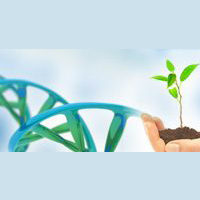Dr. John Heinerman, Ph.D., once commented, “As a medical anthropologist, I’ve tramped the jungles, hiked the mountains, crossed the deserts, forded the rivers, and traveled the cities of the world in search of dynamic folk remedies for common health problems. More often than not, I’ve learned, that a common herb with many local uses somewhere may hold the key to something universal for all of mankind.”
Such has been the case with Withania somnifera, a branched, erect shrub indigenous to the drier parts of the Indian sub-continent and Africa (especially South Africa). The leaves are ovate in shape and the flowers greenish or lurid yellow. The green berries turn a light red when mature. The good-sized root yields a bitter, sharp, acrid flavor when tasted.
The plant derives its rather melodic-sounding name ashwagandha from a curious property — it emits an odor similar to that of a sweaty horse. Many wonderful medicinal virtues have been ascribed to it. Ashwagandha is truly a product that has earned the title of “Adaptogen.” Ayurvedic doctors in India frequently employ parts of it in the treatment of external conditions like eczema, psoriasis, scabies and surface ulcers. Various African tribes have taken it internally for upset stomach and different respiratory ailments. The plant still makes a useful lotion or ointment for venereal diseases, open wounds and sores.
Occasionally ashwagandha may be referred to by the common name of Indian ginseng, which is really a misnomer, since this plant belongs to the same family (Solanaceae) as potatoes, tomatoes, bell peppers, and eggplants. It does, however, exhibit some remarkable activities much the same as true ginseng does.
Research conducted with this plant on different animal models suggests specific benefits to major organs and glands adversely affected by too much stress. Isolated components of ashwagandha strengthen the cerebral cortex, the adrenals, the hypothalamus, the heart and the liver. For people subject to hypoglycemia, chronic fatigue syndrome, herpes simplex, or yeast infection — all energy-draining health problems — this should come as a bit of good news.
Ashwagandha enables biological systems to withstand greater amounts of mental, emotional, and physical stresses. This enhanced ability of endurance is due to the 1.0% alkaloid and 1.5% withanolide contents of the product. A relaxed but still alert state has been reported in those suffering from anxiety neurosis or reactive depression. This is believed to be due to an interaction with some of ashwagandha’s primary components and areas of the brain, the spinal cord, and central nervous system.
Ingested quantities of ashwagandha have varied according to the problems being treated. Thirty patients with anxiety neurosis were given 49 milliliters of ashwagandha in two divided doses for one month. In another instance four, six or nine grams daily of root powder was administered to 46 patients suffering from rheumatoid arthritis for up to a month. In all cases where this wonderful remedy has been taken, no untoward side effects have been noticed. It has proven to be safe but very effective!
Disclaimer
This product overview was written for the sole purpose of giving a brief history along with educational insights into the product listed above. It is not designed, in whole or in part, as advice for self-diagnosis or self-treatment and should not be construed as such.


